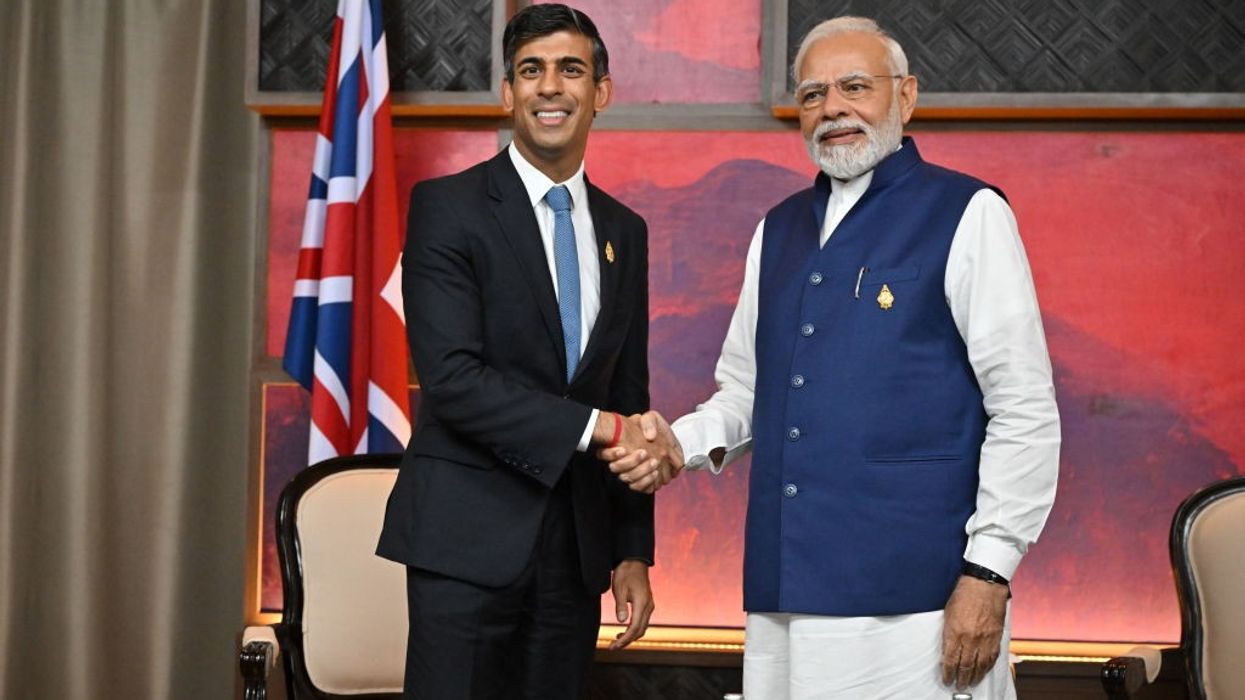Starting Tuesday (28), young professionals from the UK and India will be able to live, study, travel and work in each other's country for up to two years under the Young Professionals Scheme (YPS), the UK government announced. Under the scheme, the UK will offer up to 3,000 places annually to Indian nationals between 18 and 30 with degrees to come to the UK and live and work here. British nationals, who are in the same age group and similar qualifications and want to go to India and live and work there, are also eligible.
The first-of-its-kind programme, which was green-lit by prime minister Rishi Sunak and his Indian counterpart Narendra Modi at the G20 summit in Indonesia last November, will give nationals of both the UK and India an opportunity to benefit from new cultural experiences and inject expertise into both economies.
According to a press release from the UK's home office, Indian nationals eligible for the scheme can now enter a free-of-charge 48-hour (closes on March 2) ballot from which 2,400 randomly selected applicants will be invited to submit their visa applications.
A further ballot will be held later in the year.
Eligible British nationals who are interested do not need to apply through a ballot process and can apply to the Young Professionals Scheme any time.
Calling the scheme a unique opportunity, immigration minister Robert Jenrick said it allows both British and Indian graduates to experience the richness of a new culture and way of life while building their professional experience and expertise.
"This new scheme illustrates the importance of our relationship with India and will bring great benefits to both countries. I encourage young professionals from India and the UK who want to share their skills and talents to apply," he added.
Both countries' high commissions open procedure
The Indian high commission in London on Tuesday opened its visa-application process for UK nationals to apply for the scheme, coinciding with the ballot opened by the British high commission in New Delhi for Indian graduates.
The applicants applying for a visa under the scheme also need to have sufficient funds to support their stay.
“Under the Young Professionals Scheme, announced about a month ago, young citizens of India and the UK can visit each other for up to two years at a time,” said Indian high commissioner to the UK Vikram Doraiswami, announcing the scheme's launch on Twitter.
The Indian high commission's website has also been updated with details for applicants, at a fee set at £720.
The application is to be made under the E-1 Visa through the VFS Global visa service provider, indicating the purpose as “application under the India-UK YPS programme”.
Each applicant would be required to show funds equivalent to Rs 250,000 (£2,503) held for a minimum period of 30 days at the time of submission of the application.
According to the Indian high commission website, successful applicants can undertake employment as an “incidental part” of their stay, with certain sectors not covered within the scheme – such as defence, telecom, space tech, strategic infrastructure projects, civil aviation, human rights, nuclear energy and environment-related projects.
Those arriving in India on the new visa would also be required to register with the Foreigners Regional Registration Office/ Foreign Registration Office.
For those Indian nationals who want to go to the UK, successful candidates in the ballot need to apply for their visa by the deadline given in a subsequent invitation to apply, which is usually within 30 days.
The successful candidate must travel to the UK within six months of applying for the visa. The application fee charges have been set at £259 and additional costs involved include a £940 healthcare surcharge and proof that the applicant has £2,530 in personal savings.
The Young Professionals Scheme highlights the strength of the UK-India economic and cultural relationship and is a key part of the UK-India Mobility and Migration Partnership, which was signed in May 2021. It was also seen as an effort to propel the ongoing free trade agreement negotiations, which are now set to enter the eighth round of talks next month.
(With agency inputs)




